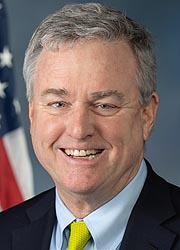
He says the nation needs to redouble efforts to save lives.
Washington DC (KM) – The US Centers for Disease Control and Prevention says last year, 107,000 Americans died from drug overdoses. “The number of 107,000 is absolutely staggering,” says Representative David Trone from Maryland’s 6th Distinct. “It’s like a jetliner every day–300 every day– crashing.”
Related to that a study in February from Stanford University and the medical publication Lancet, are projecting 1.2-million Americans and Canadians will die of drug overdoses in just this decade, according to Congressman Trone’s Office. “Republicans, Democrats, we together are better than this. America is better than this,”: says Trone. “Shame on us for losing a million Americans. And looking at statistics, it says we’ll lose another million. We’ve got to pull together as a national emergency.”
Representative Trone, is a co-founder and co-chair of the Bipartisan Addiction and Mental Health Task Force.
He’s taken an interest in efforts to bring down the number of deaths from overdoses because he lost a family member to an overdose. “I lost my nephew, Ian Trone. He died of a fentanyl overdose at age 24 on New Year’s Eve in 2016,” he says. “And, frankly, my story’s not different than hundreds of thousands of other families.”
A big part of the problem is fentanyl, Trone says, which is an opioid that’s 50 times stronger that heroin. He says there are counterfeit prescription drugs which are sometimes laced with fentanyl. “And literally two milligrams–the equivalent of a couple of grams of sugar, a little bit of sugar–that’s all it looks like, mixed in with a pill. And if you get much over that, and you’re dead,” says Trone.
He says the solution is to cut off the supply of opioids, including fentanyl, and getting those with addictions into treatment. “And we’ve got to remove the stigma,” he said “The stigma is so important. That’s what stops people from saying is ‘I need some help.’ And what we want is for people to feel comfortable and say ‘I have a substance use issue; I have a mental health crisis.’ They go together so often.”
By Kevin McManus